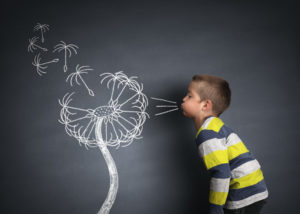8 Things NOT to say to a child struggling with mental health
Mental Health and Children in the UK
Current data shows that ‘One in six children aged five to 16 were identified as having a probable mental health problem in July 2020’ (NHS Digital, 2020). Further, ‘The number of A&E attendances by young people aged 18 or under with a recorded diagnosis of a psychiatric condition more than tripled between 2010 and 2018-19’ (NHS Digital, 2020). The Children’s Society found that ‘1 in 9 children are unhappy with their school’
Some of the challenges that young people face about sharing their mental health challenges include:
- Previously having been dismissed when they shared their feelings
- Referrals not being made as they do not meet thresholds
- Prior assessments not leading to intervention
- Not knowing who to tell
- Insufficient services available
- Not being believed
- Being told that they are exaggerating
- Being ignored
- Knowing a friend who has had a negative experience
Stigma surrounding mental health remains real, and it is rife in many settings. Research has found that those who come into primary contact with people with mental health struggles are often less compassionate and understanding of the needs of the person. So, as parents or professionals in the education and care industries, what are some of the things to avoid saying when a child discloses they are struggling through their words or actions?

8 things not to say to children
#1 – “You’re too young to have anything to worry about”
Whilst it can feel as thought children and young people do not have challenges to deal with, the way that each individual child responds to the world around them is unique to them. Every child has different levels of self-esteem and resilience and as such will navigate stressors and challenges differently. Young people have very different childhoods and obstacles to navigate and sometimes one stressor, or a collection of stressors will have a compounding effect. Therefore, we need to ensure to not belittle or talk negatively about their struggles and instead validate and listen to their worries.
#2 – “You’re just attention seeking”
Children all react differently to struggles, just as adults do. Whilst some will become insular and stop talking, others will look like the duck on the pond, managing daily and yet battling at home, for some they may react loudly, aggressively or in a challenging way as a cry for help, to tell us that they cannot cope. In all instances, children need connection and to be heard. Ensuring that we are available to talk, help them to regulate and navigate ways forward.
#3 – “Stop being so vain/stupid/silly”
Sometimes, when young people disclose their struggles with their mental health, it can catch adults off guard or they can feel unprepared. Or, the disclosure may be made during an argument or challenging conversation and the reactions that they receive can be reactive, rather than responsive. When a child or young person is struggling with their mental health, they often demonstrate this through behaviours such as emotional outbursts, extreme or challenging reactions or through emotions, these are not a reflection of being attention seeking, but rather a sign that they cannot process the thoughts or emotions,
#4 – “You need to grow up”
Whilst it can be overwhelming to be supporting a child who is struggling with their emotions, we need to be aware that it is not a case of ‘needing to grow up’. Children’s pre-frontal cortex, the area of the brain linked to problem solving, impulse control, cognitive flexibility and rationalising develops in adolescence until they are around 25 years old. Therefore, children do not physically have the capability to solve some of their struggles, and need us, as adults, to support, guide and help.
#5 – “You’re making me ill”
When a child is struggling, the emotional and mental toll this has on parents is sometimes significant. However, whilst we may want to point out to them that they are making us feel unwell, we need to ensure that we are not making them feel responsible for our mental health which can exasperate their struggles or prevent them from talking to us. Being aware that guilting or shaming a child for having mental health struggles is counterproductive to helping them is key. This can be the same situation when we need to advocate for them in the education or care industry. If children feel that they are a burden they are at increased risk of internalising their struggles, which may mean you cannot see when things escalate. Being their lighthouse in the dark is key to staying connected and guiding them through the battle.
#6 – “It’s just your hormones”
Whilst we know that teenagers will experience hormonal issues as they go through puberty (most children start puberty around 11-12 but this can occur from 8-14) and that this can contribute to mental health difficulties such as low mood, anxiety, PMT, PMDD. However, we should not dismiss all mental health difficulties solely on hormones as this may lead to us either missing a bigger problem, or invalidating a child’s feelings. You may work with the child to keep a diary of their mood to look at patterns, such as a menstrual cycle link, but also to look at other events which may be contributing to their feelings.
And when they are better, be aware….

#7 – “So, it wasn’t that bad then, was it?”
Recovering from mental health struggles takes time, commitment and inner strength. Ensuring that we do not belittle or invalidate a young person’s journey is incredibly important. Instead, respect that they have worked really hard and have shown such strength and conviction.
#8 – “You didn’t have to make so much fuss then, did you?”
Sometimes, we need to challenge our own misconceptions and beliefs about mental health, particularly if we have a negative or dismissive view of mental health challenges. Every individual experiencing mental health difficulties will react differently, and as such, we need to ensure that we are well educated and understanding. You don’t have to be an expert, but you do need to be compassionate and considerate.
Each child is completely unique, and will need different levels of support and intervention. Our role, as adults, is to validate their emotions (even if we do not understand) so that they feel heard and supported, so that steps forward are made together. When a child feels that they have a connection with a trusting and supportive adult they are more likely to engage with help and support as they know that you are there to advocate. At times, this may feel challenging, and reaching out for help and support for yourself is paramount.
© Dandelion Training and Development – All Rights Reserved

Further help
For more articles about mental health visit – HERE
To learn more about child and adolescent mental health visit – HERE
For resources to support child and adolescent mental health visit – HERE
Reference:
Children’s Society (2021) The Good Childhood Report. Available: https://www.childrenssociety.org.uk/information/professionals/resources/good-childhood-report-2021
NHS Digital (2020): ‘Mental Health of Children and Young People in England’, prevalence survey. Available at: https://digital.nhs.uk/data-and-information/publications/statistical/mental-health-of-children-and-young-people-in-england/2020-wave-1-follow-up
NHS Digital / The Independent (January 2020) ‘Number of children admitted to A&E with mental health problems jumps 330 per cent over past decade’. Available at: https://www.independent.co.uk/news/health/children-mental-health-hospital-suicide-nhs-ae-a9255626.html
